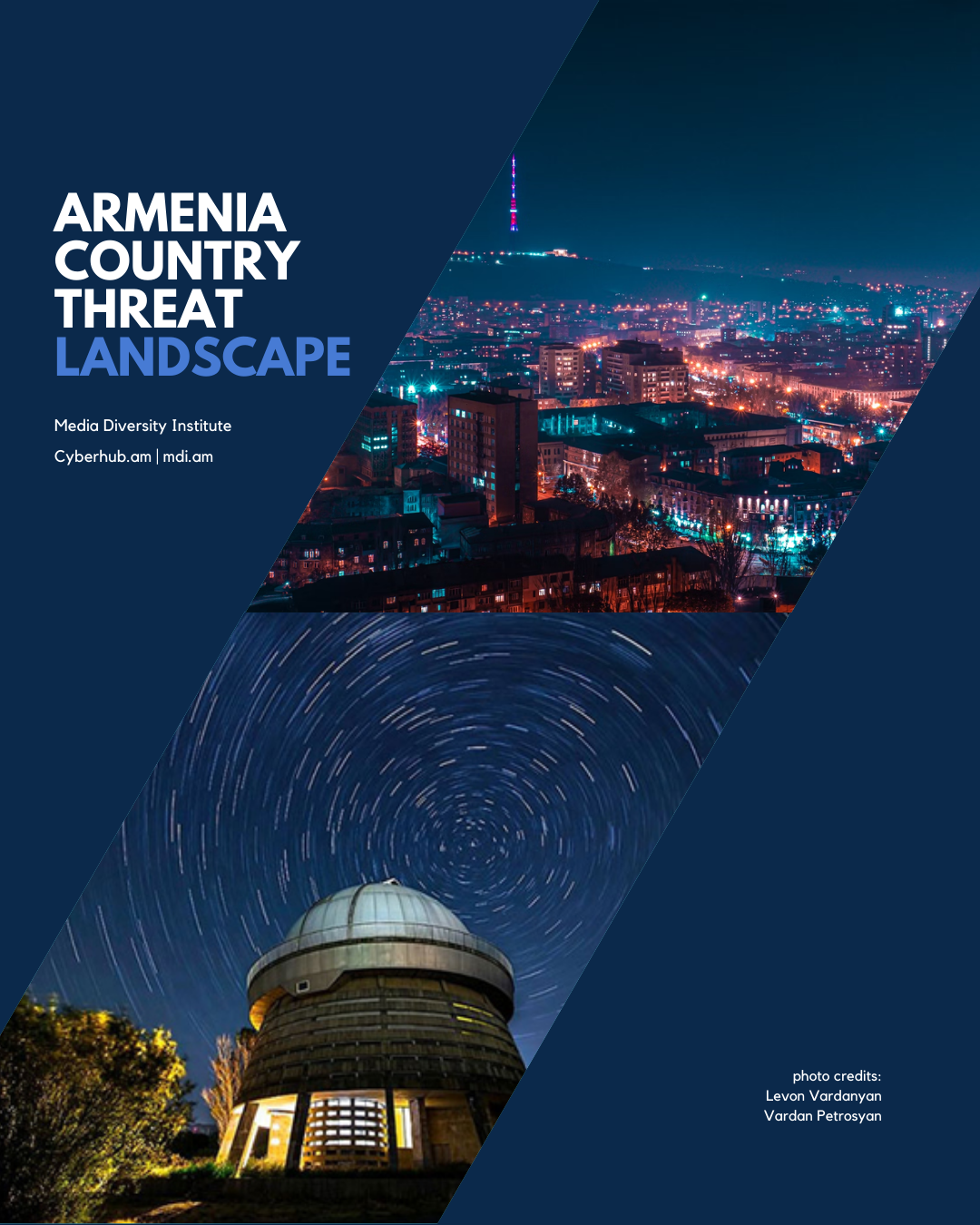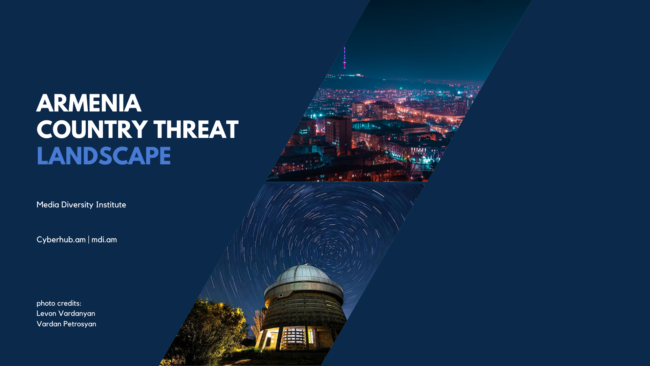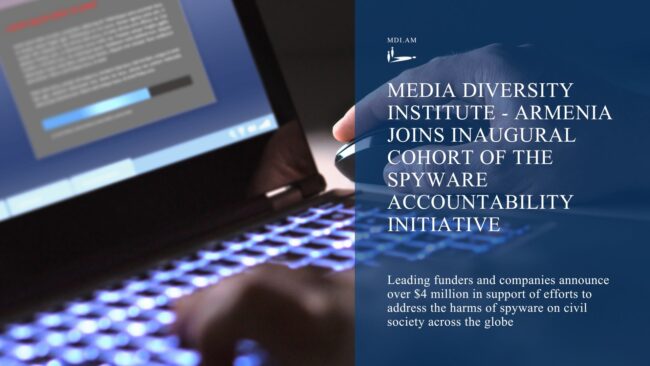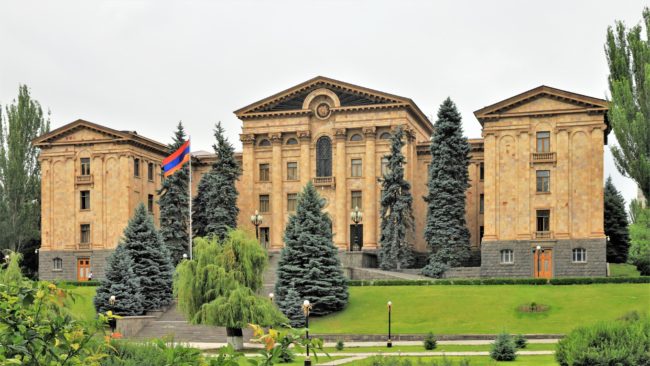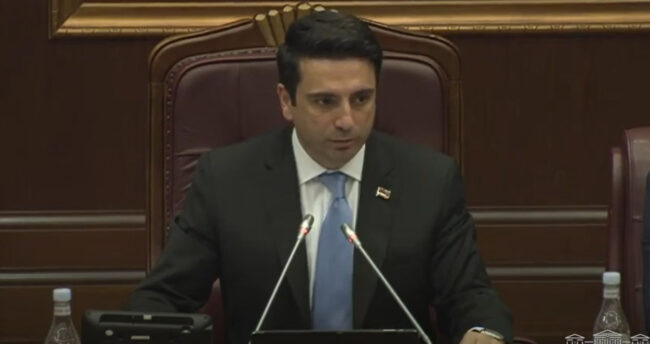Armenia does not have specific regulations for the use of artificial intelligence, machine learning, or similar technologies, as well as data processing through them. The main tool is the Law “On Protection of Personal Data”, adopted in 2015[i].
According to Article 5 of that Law (“Principle of Proportionality”):
1. The processing of data must pursue a legitimate purpose, and measures to achieve it must be suitable, necessary, and moderate.
2. The processor of personal data shall be obliged to process the minimum volume of personal data, which is necessary to achieve legitimate purposes.
3. The processing of personal data that are not necessary for the purpose of the processing of data or are incompatible with it shall be prohibited.
4. The processing of personal data shall be prohibited where the purpose of data processing is possible to achieve in a depersonalized manner.
5. Personal data must be stored in such a way as to exclude the identification thereof with the data subject for a period longer than is necessary to achieve their predetermined purposes.
The law or other by-laws do not separate the processing of personal data from the use of artificial intelligence, machine learning, large numbers, or other technologies of the kind. It is not taken into consideration that such data processing techniques pose additional risks, both in private and public life.
Thus, in the personal data processing regulations of three mobile operators, which are among the main large-scale processors of personal data, there is absolutely no information on the use of algorithms, and data processing through machine learning[ii].
This topic is not discussed either at the legislative level or during public debates. Meanwhile, regularly there appear programs in Armenia where such processing is either carried out or can be noticed.
Mass processing of personal data and their use in public life
On December 13, 2017, it was reported that Vahan Martirosyan, Minister of Transport, Communication and Information Technologies of Armenia, received the representatives of the Chinese company Huawei Technologies. The meeting participants discussed issues related to the implementation of the “Smart City” project. In the same month, the Ministry and Huawei Technologies signed a memorandum of understanding on the implementation of the Project.
The memorandum was signed by Boris Demirkhanyan, Deputy Minister of Transport, Communications and Information Technologies of Armenia, and Cao Chun, Vice President of Huawei Technologies. The main idea is smart city management (intellectualization), which implies regulating public life in Yerevan through the use of the latest big data processing technologies[iii]. However, after the 2018 change of government in Armenia, the negotiations were suspended. Updates about the program were terminated as well[iv].
Nevertheless, the idea of mass data processing did not cease to exist. Yerevan Deputy Mayor Tigran Avinyan has stated that there are a number of areas where artificial intelligence may be used, and can ensure innovation in those fields. According to Avinyan, artificial intelligence can be used, for example, in education. “There are many areas where artificial intelligence has provided, is providing, and should provide innovation and improvement. We use lots of similar things, such as face recognition or when artificial intelligence tools help improve the lives of city-dwellers.”[v]
In parallel, structures and systems are being formed. In the summer of 2022, the “Police Video and Photo Recording Electronic Systems Management Center” a state non-commercial organization (SNCO) under the Police was established. It is expected to merge with the “Parking City Service” CJSC, which delivers parking services in Yerevan, as well as with the video recording systems of pharmacies, arms sales companies, retail facilities, commercial areas, public catering facilities, domestic service facilities, casinos and gambling halls[vi].
With the proposed new project, the SNCO will track public transport online. The Police propose to equip bus and minibus aisles with a high-quality video surveillance system, with the possibility of recording in the dark and storing the footage for at least 10 days[vii].
Citizen surveillance during the COVID-19 quarantine
During the quarantine implemented due to the COVID-19 pandemic, the Armenian Government declared a state of emergency on March 16, 2020[viii].
A few days later, the National Assembly, in fact, authorized the Government to track all residents of the country using the data collected by mobile operators.
Based on that decision, the Government installed a special software, which, through machine learning and big data, processes the metadata of all phone calls (who called whom, when, how long the conversation lasted), short messages, and geolocation data received from all three mobile operators. On April 7, 2020, the system was already in effect[ix].
In order to find out the circle of contacts of infection carriers, the obtained data were collected and stored on the server of the e-Governance Infrastructure Implementation Agency (EKENG). The maintenance and security of the special computer program are under the supervision of the National Security Service. The Government did not disclose the developers of the software that runs the surveillance system. In response to the “Hetq” inquiry, on behalf of Commandant Tigran Avinyan, Serge Varag Siseryan, Head of the Deputy Prime Minister’s Office, noted that “the computer program [for tracking people through calls] was created by Armenian volunteer programmers.”[x]
The system operated until September 25, 2020, after which the hard drives containing the data were destroyed in the presence of the representatives of the Government, National Assembly and three mobile operators[xi].
Throughout the operation of the system, no public oversight mechanism was ever created, which would allow to make sure that the data were not used by the NSS for other purposes, and that they were not transferred to a third party (given the fact that the Government never disclosed the information on the company that created the system) or that all possible copies of data were destroyed.
Conclusion
The Armenian legislation does not take into account that massive and algorithmic processing of personal data provides an opportunity to obtain additional data that can be used to impact social developments[xii]. Added to that, there is no consideration of the fact that the incorrect or directed use of algorithms and data processing may become discriminatory[xiii].
The processing and use of personal data by artificial intelligence and algorithms require additional focus and a deeper consideration than there was before the widespread use of new technologies, which process large amounts of data[xiv]. Overall, the problems that may arise in the case of massive machine processing of personal data are outside the public discourse and focus. In fact, no adequate awareness of the problem is provided by the state. No appropriate legal base is formed, and the existing legislation is not updated. The public, in its turn, does not take steps to establish control in the field.
[i] Law “On Protection of Personal Data”, https://www.arlis.am/documentview.aspx?docid=117034
[ii] Viva-MTS, Privacy policy https://www.mts.am/en/more/legal-information/privacy-policy;
Ucom, Personal data processing policy https://www.ucom.am/file_manager/poa/20190603_UCOM_privacy%20policy(en)_ENG.pdf;
Team Telecom, Privacy policy https://www.telecomarmenia.am/en/privacy-policy
[iii] Huawei “Smart City” Pilot Project Will be Implemented in Armenia, 16.03.2107, https://huaweiarmenia.am/gb/blog-post/16
[iv] Armenia Freedom On The Net Report, 2019, https://freedomhouse.org/country/armenia/freedom-net/2019
[v] Tigran Avinyan emphasized the use of artificial intelligence in several fields, 05.10.2022, https://radar.am/en/news/politics-2529933880/
[vi] The RA Police Chief Decree on the Approval of the Statute of “Police Video and Photo Recording Electronic Systems Management Center” SNCO, 09.08.2022 https://www.irtek.am/views/act.aspx?aid=117416
[vii] VIDEO, Cameras to be installed on buses and minibuses: a new draft law, 01.12.2022, https://armlur.am/1228777/
[viii] Armenia Cabinet approves bill on declaring 30-day state of emergency over coronavirus, 16.03.2020, https://armenpress.am/eng/news/1008787.html
[ix] Commandant’s Office: the system to track the movement and circle of phone calls of citizens already in effect, 07.04.2020, https://www.azatutyun.am/a/30538167.html
[x] Armenia: Security Concerns Raised about the Computer Program Tracking the Movement of Coronavirus Carriers, 07.05.2020, https://hetq.am/en/article/116810
[xi] Protocol, 25.09.2020, https://www.gov.am/u_files/file/Haytararutyunner/Ardzanagrutyun.pdf
[xii] The man that killed Cambridge Analytica: ‘We made mistakes, but they aren’t what you think’, 28.08.2019, https://web.archive.org/web/20201008164958/https://www.telegraph.co.uk/technology/2019/08/07/man-killed-cambridge-analytica-made-mistakes-arent-think/
[xiii] The Toronto Declaration: Protecting the right to equality and non-discrimination in machine learning systems, https://www.accessnow.org/cms/assets/uploads/2018/08/The-Toronto-Declaration_ENG_08-2018.pdf
[xiv] #BigData: Discrimination in data-supported decision making, https://fra.europa.eu/sites/default/files/fra_uploads/fra-2018-focus-big-data_en.pdf
